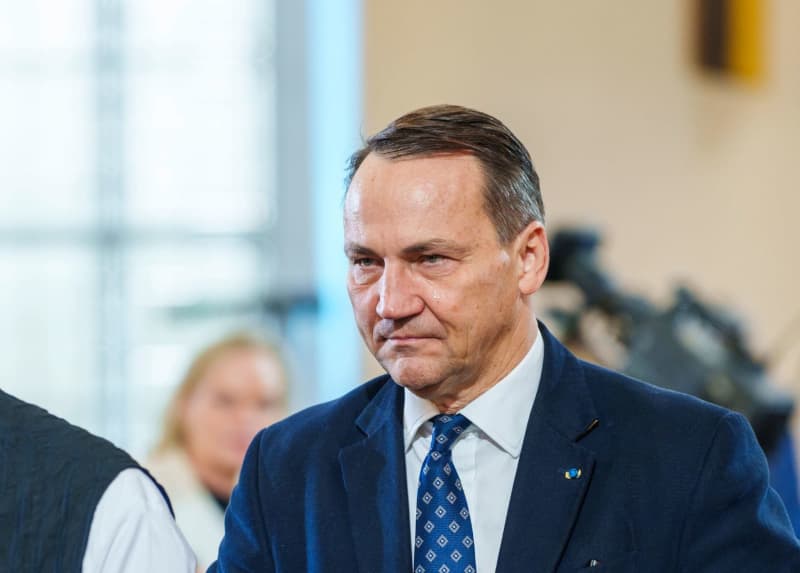Polish Foreign Minister Radosław Sikorski has announced his intention to run in Poland’s presidential election next year during an interview with Radio Zet. Although he has expressed ambition for the presidency, he emphasized that the final decision on the party’s candidate will ultimately rest with the Civic Coalition, the liberal conservative party led by Prime Minister Donald Tusk. The Civic Coalition is scheduled to reveal its chosen candidate on December 7, ahead of the presidential elections anticipated to take place in May, though the exact date remains unconfirmed.
Current President Andrzej Duda, affiliated with the conservative Law and Justice Party (PiS), is completing his second term and is therefore ineligible to seek re-election. Duda’s presidency has been marked by significant friction with Tusk’s government, which is pro-European in its orientation. His administration has blocked numerous initiatives aimed at strengthening ties with the EU, leaving a political vacuum that Tusk and his party aim to fill. Given the current political context, Sikorski’s candidacy represents the coalition’s effort to challenge the prevailing nationalist sentiments and restore a more European-oriented governance in Poland.
Sikorski has established himself as a prominent advocate for trans-Atlantic relationships, particularly highlighting the need for Poland to support Ukraine amidst ongoing geopolitical tensions. His track record as the nation’s chief diplomat from 2007 to 2014, complemented by his previous role as defence minister, positions him as an experienced figure in foreign and defence policy discussions. Sikorski’s expertise is particularly critical at a time when Poland’s strategic interests are increasingly tied to broader regional security issues, especially in light of prevailing threats from neighboring Russia.
A key element of Sikorski’s profile is his marriage to Anne Applebaum, a well-regarded historian and journalist who has recently been honored with the Peace Prize of the German Book Trade. Their relationship underscores a commitment to intellectual discourse and an insightful analysis of contemporary issues facing not just Poland, but Europe as a whole. Her recognition also hints at a supportive personal network that could play an influential role in his campaign efforts.
In addition to Sikorski, the Civic Coalition appears to harbor multiple presidential aspirations, particularly from Warsaw’s Mayor Rafał Trzaskowski, who narrowly lost to Duda in the 2020 presidential runoff election. Trzaskowski’s high-profile status and connection with urban voters make him a formidable opponent within the party. However, Sikorski’s experience in foreign and defence policy differentiates him and may appeal to voters prioritizing national security and international relations as key issues for the upcoming election.
As the situation stands, the upcoming presidential election in Poland represents a critical juncture for the Civic Coalition and its strategies for retaking political control from the reigning nationalist government. With potential candidates like Sikorski and Trzaskowski vying for the party’s endorsement, the coalition’s eventual choice could have lasting implications for Poland’s future direction, particularly regarding foreign policy, EU relations, and regional security strategies. The outcome will likely reflect not only the political preferences of Polish voters but also their responses to the changing dynamics of European and trans-Atlantic relations.

